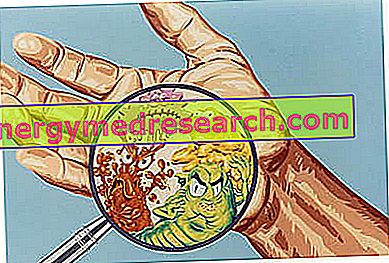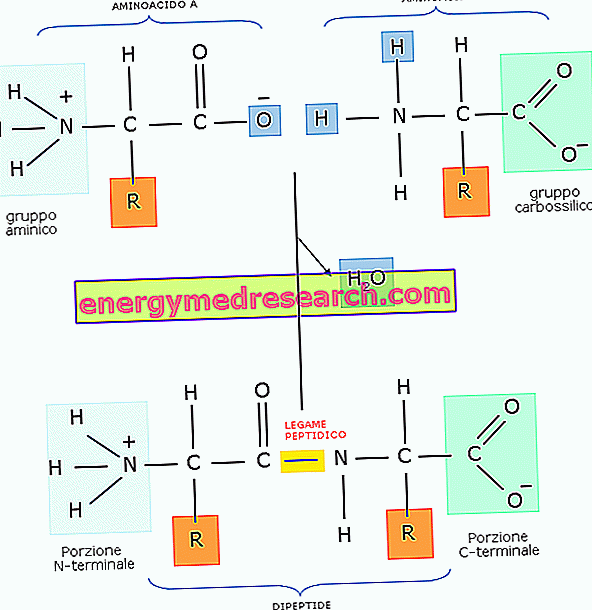Related articles: Fetal-alcohol syndrome
Definition
Fetal alcohol syndrome is considered the most serious consequence of alcohol consumption during pregnancy.
In fact, ethanol is attributed a teratogenic effect, therefore capable of influencing embryonic and fetal development.
Alcohol is able to cross the placental barrier, therefore it reaches the fetus after a few minutes, maintaining a blood concentration slightly lower than that of the mother. The fetus, being free of enzymes suitable for metabolizing alcohol, suffers the harmful effects of ethanol and its metabolites (such as acetaldehyde). The most serious consequences are found in the central nervous system and in the tissues being formed.
The extent of damage reported by the fetus is related to the frequency and amount of alcohol consumed. Exposure during the first trimester of pregnancy is more dangerous.
Most common symptoms and signs *
- Miscarriage
- Eye fatigue
- Aggression
- Small child for gestational age
- blepharoptosis
- Impulsive behavior
- Convulsions
- Depression
- Learning difficulties
- Difficulty concentrating
- Language difficulties
- Hip dysplasia
- Mood disorders
- gastroschisis
- Insomnia
- Hearing loss
- Hypospadias
- Jaundice
- macrocephaly
- Thinness
- Dental malocclusion
- Functional Meteorism
- Microcephaly
- Microphthalmos
- micrognathia
- Fetal death
- Nervousness
- Nystagmus
- Misaligned eyes
- Reduced vision
- Acid regurgitation
- Growth delay
- Mental delay
- Scoliosis
- Syndactyly
- Tremors
- He retched
Further indications
The fetal alcohol syndrome is characterized by three groups of symptoms: morphological abnormalities, pre- and / or post-natal growth defects and neuro-psychological disorders.
The child with fetal alcohol syndrome can present very variable morphological anomalies, which mainly affect the face. Typical craniofacial dysmorphisms include: spaced, small eyes, short and flat nose, maxillary and mandibular hypoplasia, short palpebral rhymes and thin upper lip. Low-posed ears can also occur and turned back, cleft palate, strabismus and eyelid ptosis.
The delay in growth occurs with values below the average for height, body weight and head circumference.
Fetal alcohol syndrome can also involve cardiac dysfunctions, alterations of the urogenital tract, joint and vertebral anomalies (eg hip dysplasia and scoliosis), gastrointestinal problems and other malformations.
In addition, the child with fetal alcohol syndrome manifests dysfunctions of the central nervous system, with behavioral disorders and cognitive and motor developmental deficits. Cognitive alterations are very variable: some are evident early, others occur only when more complex processes are required. Sleep disturbances, inefficient sucking, uncontrolled crying, speech and hearing disorders may occur. As the age progresses, irritability, restlessness, hyperactivity, attention deficit, delay in learning, low academic performance and poor social adaptation can become evident.
The diagnosis involves the assessment of alcohol exposure.
Feto-alcohol syndrome is irreversible, but can be avoided by completely abstaining from alcohol during pregnancy.



